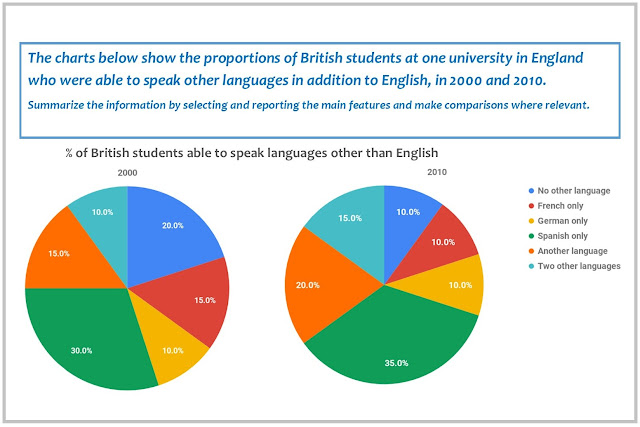IELTS preparation. All that glitters is not gold. Mat Clark.
Nowadays
there are a myriad of IELTS preparation resources – course books, websites, blogs,
mobile apps – you name it. Unfortunately, not all of them are equally good. Some
are just excellent, but not very well known; others are questionable, but
widespread. Students are often at a loss about which resources to use, so every
once in a while I have to explain and comment on this or that resource. In order to save time and effort doing that,
I’ve decided to write about some of the most popular resources in my blog.
Today I’m
going to write about a book hugely popular among Russian students – IELTS Speaking by Mat Clark. Despite the fact that
it was written by an IELTS examiner, in my opinion, a lot of what it says
should be taken with a grain of salt.
Since I’m going to focus on the dangers of blindly following the recommendations in this book, I’ll start with the praise.
First, the author did a great job of classifying typical exam questions - Liking, Disliking, “How often” questions, “Would” questions, “Why” questions, Advantages and Disadvantages and so on. You do have to pay attention to the question type and answer accordingly. For example, if it’s a “would” question, you have to use the Second Conditional grammar, or, it’s a good idea to have plenty of synonyms in stock for such phrases as “I like” or “There are many advantages / disadvantages”. Second, Mat Clark is right in drawing special attention to discourse markers and linking devices. Many people underuse them or keep repeating the same ones. Third, he offers some great vocabulary on the most typical exam topics. It’s really nice to have it grouped together in one place. Like this:
Finally, some advice is undoubtedly helpful and very practical. For example, the advice on how to choose what to talk about in Part 2:
None of the materials he gives are absolutely unique, of course, but he gathered and organized all of them in one book, which is undeniably convenient.
Now, moving
on to the dangers.
First and
foremost – the author definitely overegged the pudding! Many model answers
sound highly unnatural. For instance, you followed his admittedly sensible advice
and learned lots of linking devices and synonyms for “I like”. Now, according to
the author, your answer to the question “Do
you like animals?” should sound like this:

This just
makes me want to exclaim, “Oh my God, I
just asked you if you liked animals!” The answer sounds absurd! Nobody ever
communicates a simple fact “I like dogs”
like this in real life. Why speak like this at the exam? 

Why don’t I
recommend following this piece of advice? Well, for a start – you will probably
be nervous at the exam and might forget words in a natural way. Why pretend to
forget? On top of that, why paraphrase “carbon
monoxide”? The words you should
paraphrase are not words like “chair, table”, but words like “good, bad”. Instead
of using this questionable technique, say two good-quality sentences, say
something like “An additional problem
with cars is that they produce a lot of carbon
monoxide, which can have extremely harmful health effects. Plus, car
exhaust emissions contribute to
air pollution and cause irreparable
damage to the environment.” To my mind, it’s better to put effort into
using harmful, irreparable, contribute to, cause, than into fake
“forgetting-remembering”.
Last but not
least, this book is pretty well-known – to teachers, students, examiners. After
you’ve read it, your speech acquires very specific characteristics. I recognize
these characteristics in a student’s speech after two minutes of talking to
them and start to frown. Do you realize the examiner might too? Do you realize
the examiner might have heard all these phrases and techniques 100 times? In my
humble opinion, it’s better to sound natural and unique, rather than follow a
popular but arguable model.
To
conclude, all that glitters is not gold. Please think twice and use this book
with caution.






Полностью согласен с Вами Ирина.
ReplyDeleteАнализируя свои ошибки в устной речи при сдачи TOEFL я пришёл к выводу что лучшая стратегия это отвечать прямо на поставленный вопрос(ы)не вдаваясь в подробности.
Например, в Integrated Tasks есть вопросы (после прочтения статьи и прослушивания обсуждения этой статьи между двумя людьми)типа:
Why does the woman approve of the article? State her opinion and explain the reasons she gives for holding that opinion.
Отвечая на подобный вопрос я получил низкий бал (как я понимаю) потому что пытался показать что я понял о чем статья и диалог. Подойдя к сути вопроса у меня оставалось только секунд 10. Конечно я ничего не успел. Сейчас я бы поступил не так. Сразу 2-3 фразами сказал бы что-то типа.
The woman approve (does not approve) of the article for the following reason(s).
First, ...
Second, ...
Всё! Дальше уже можно блистать знаниями английского и порассуждать так сказать о глубокой подоплеке обсуждаемой проблемы.
И ещё хотел бы отметить что заученные формы могут повредить во время экзамена. Небольшое несоответствии вопроса с подготовленной формой ответа может стоить дорого. Потеряв равновесия, пытаясь найти новый вариант ответа, можно полностью провалить задание. Хотя безусловно какие-то стандартные фразы знать нужно.
Absolutely! I couldn't agree more! Про то, что нужно прямо и чётко отвечать на поставленный вопрос, мне следует даже отдельную статью блога написать. Многие даже не замечают, что не отвечают на вопрос.
ReplyDeleteПро заученные формы тоже всё верно. Составители экзаменов часто делают задания "чуть-чуть другими". Но если вы просто отвечаете на вопрос - для вас это не будет проблемой. А если полагаетесь только на шаблоны - провалите.
Одна студентка рассказывала, что её подруге на экзамене IELTS Speaking экзаменатор предложил поговорить про распределение Гаусса. =) Думаю, она как раз засорила всю свою речь шаблонами, и он решил посмотреть, есть ли у неё язык кроме шаблонов. На IELTS можно отшутиться и продолжать экзамен, а вот в TOEFL второго шанса нет. =)